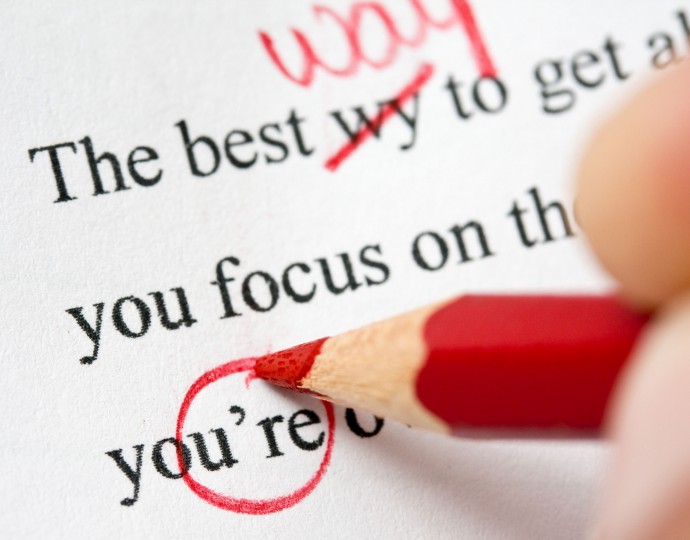
Common Grammar Mistakes Many People Make
Many students who are learning English do make these mistakes. However don't take them to the heart too much, as even I and many other natives tend to make mistakes on these things as well. As you have seen so far, English is a profound language notorious for grammar preciseness and it does give some freedom as well but that freedom in expression is where many people make mistakes. Here are some prime examples:
1. Misplaced apostrophes
Apostrophes aren’t difficult to use once you know how, but putting them in the wrong place is one of the most common grammar mistakes in the English language. Many people use an apostrophe to form the plural of a word, particularly if the word in question ends in a vowel, which might make the word look strange with an S added to make it plural.
The rules:
- Apostrophes indicate possession – something belonging to something or someone else.
- To indicate something belonging to one person, the apostrophe goes before the ‘s’. For instance, “The girl’s horse.”
- To indicate something belonging to more than one person, put the apostrophe after the ‘s’. For example, “The girls’ horse.”
- Apostrophes are also used to indicate a contracted word. For example, “don’t” uses an apostrophe to indicate that the word is missing the “o” from “do not”.
- Apostrophes are never used to make a word plural, even when a word is in number form, as in a date.
2. Your/you’re
We covered this one before in our post on homophones, but it’s such a widespread problem that there’s no harm in covering it again.
The rules:
- “Your” indicates possession – something belonging to you.
- “You’re” is short for “you are”.
How not to do it:
- Your beautiful
- Do you know when your coming over?
- Can I have one of you’re biscuits?
How to do it properly:
- You’re beautiful
- Do you know when you’re coming over?
- Can I have one of your biscuits?
3. There/their/they’re
We’ve met this one before, too; it’s another example of those pesky homophones – words that sound the same but have different meanings.
The rules:
- Use “there” to refer to a place that isn’t here – “over there”.
- We also use “there” to state something – “There are no cakes left.”
- “Their” indicates possession – something belonging to them.
- “They’re” is short for “they are”.
How not to do it:
- Their going to be here soon
- We should contact they’re agent
- Can we use there boat?
- Their is an argument that says
How to do it properly:
- They’re going to be here soon
- We should contact their agent
- Can we use their boat?
- There is an argument that says
4. Me/myself/I
The matter of how to refer to oneself causes all manner of conundrums, particularly when referring to another person in the same sentence. Here’s how to remember whether to use “me”, “myself” or “I”.
The rules:
- When referring to yourself and someone else, put their name first in the sentence.
- Choose “me” or “I” by removing their name and seeing which sounds right.
- For example, with the sentence “John and I are off to the circus”, you wouldn’t say “me is off to the circus” if it was just you; you’d say “I am off to the circus”. Therefore when talking about going with someone else, you say “John and I”.
- You only use “myself” if you’ve already used “I”, making you the subject of the sentence.
How not to do it:
- Me and John are off to the circus
- Myself and John are going into town
- Give it to John and I to look after
How to do it properly:
- John and I are off to the circus
- John and I are going into town
- Give it to John and me to look after
- I’ll deal with it myself
- I thought to myself
5. I.e. and e.g.
These two abbreviations are commonly confused, and many people use them interchangeably. However, their uses are very different.
The rules:
- I.e. means “that is” or “in other words”. It comes from the Latin words “id est”.
- E.g. means “for example”. It comes from the Latin words “exempli gratia”.
- Only use “i.e.” and “e.g.” when writing informally. In formal documents, such as essays, it is better to write out the meanings (“for example” or “that is”).
How not to do it:
- He liked many different cheeses, i.e. cheddar, camembert and brie.
- He objects to the changes – e.g. he won’t be accepting them.
How to do it properly:
- He liked many different cheeses, e.g. cheddar, camembert and brie.
- He objects to the changes – i.e. he won’t be accepting them.
I hope these will help you in developing your English skills further.